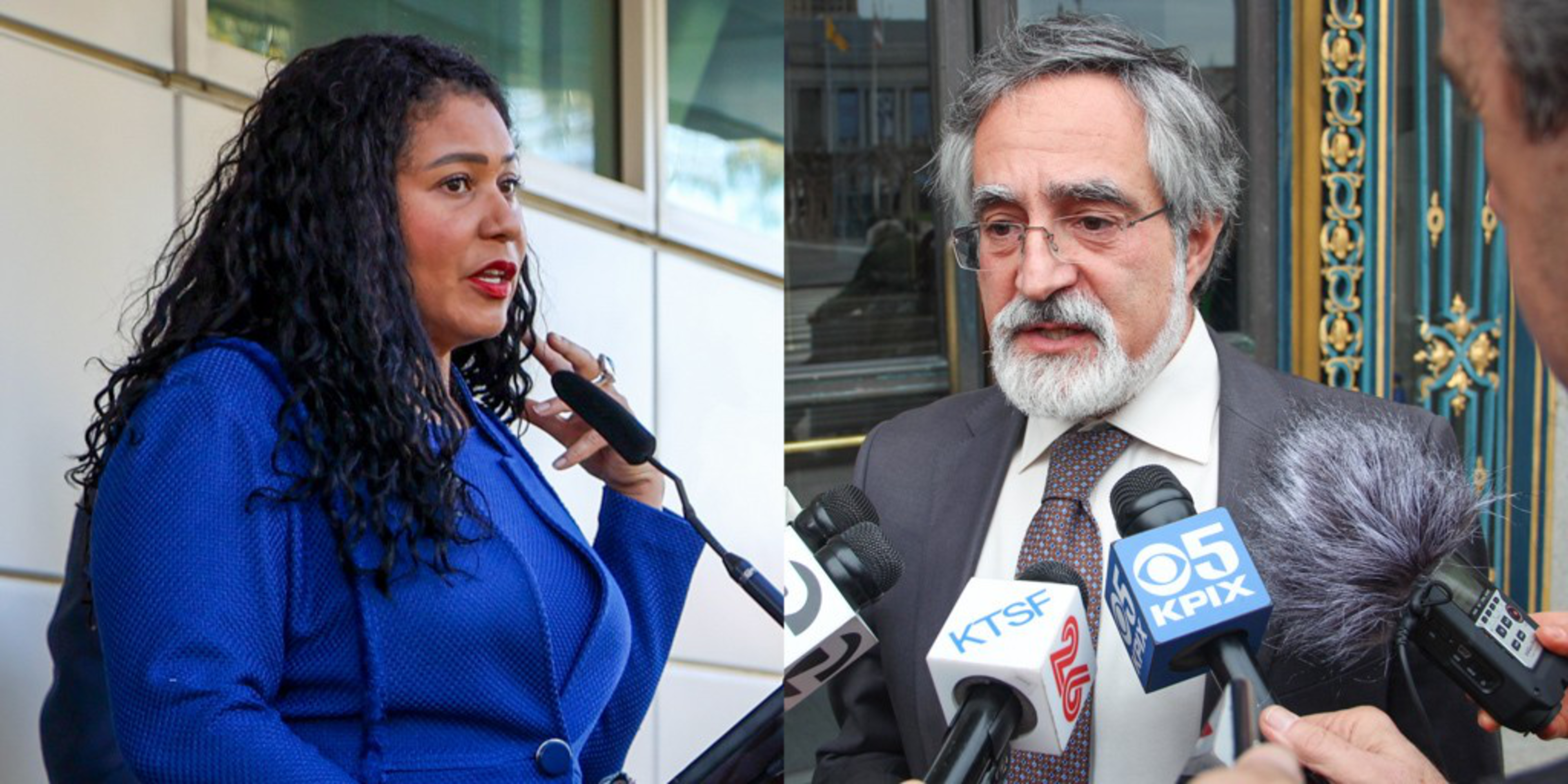A critical chapter in the fight over expanding police surveillance in San Francisco ended quietly this week when Mayor London Breed and Supervisor Aaron Peskin agreed to settle their differences at City Hall instead of going to voters with dueling ballot measures this June.
Mayor Breed stunned privacy advocates last December when she announced plans to allow police to monitor surveillance cameras in real time following a spate of smash-and-grab burglaries in Union Square that drew national attention. The mayor argued that a 2019 privacy ordinance pushed by Peskin posed an obstacle for police responding to the burglaries because officers could not watch cameras in the area in real time.
The ordinance prohibits police and other city agencies from using new surveillance technologies without first getting approval from the Board of Supervisors.
The mayor followed through with her announcement in January with a carrot-and-stick approach. While Breed said she hoped to work things out beneath the dome, she also sought to gain leverage at City Hall by placing a measure on the June ballot to amend the ordinance.
The measure would have allowed police to use new surveillance technologies under a broader set of emergency circumstances without prior approval. The proposal also would have given Police Chief Bill Scott the power to use new surveillance technologies by declaring “Public Safety Crisis Areas” in neighborhoods with high crime and drug dealing.
Peskin fired back with his own measure that would have kept the 2019 ordinance intact and streamlined the process for agencies to gain approval to use new technologies. Both he and privacy advocates argued that all police had to do to use cameras in real time was submit a usage policy for the new technology to the Board of Supervisors.
But on Monday, both Breed and Peskin withdrew their proposals.
Jeff Cretan, a spokesperson for Breed, said the mayor is hopeful her proposed changes can be made through the board process.
“The mayor from the beginning said she wanted to pass this at the Board of Supervisors,” Cretan said. “We have been making good progress in discussions about passing this at the Board, so we have pulled the proposed ballot measure from the June ballot.”
However, Cretan warned that the measure could still be placed on the November ballot if conversations with the board grind to a halt. In January, Breed also introduced legislation to the board alongside Supervisor Catherine Stefani that mirrored her ballot measure. That option is still in play.
In a statement, Peskin said “common sense has prevailed.”
“The people of San Francisco deserve better than unnecessary political fights,” he said. “When it comes to police use of surveillance technology, public safety and thoughtful oversight are one and the same. Now it’s time for law enforcement to come into compliance with the law.”
Lee Hepner, an aide for Peskin, said he expects the mayor and board to settle their differences through the process already outlined under the existing surveillance ordinance. That entails the police submitting a policy for the usage of live surveillance to the Board of Supervisors and a surveillance oversight board for approval. Hepner said a draft is in the works.
Meanwhile, the City Attorney’s Office recently beat back an attempt by civil liberties groups to show that police illegally used live surveillance by gaining access to a network of Union Square security cameras to monitor protests over the police killing of George Floyd.
The Electronic Frontier Foundation and ACLU of Northern California sued the city on behalf of three protesters in October 2020, alleging that police violated the surveillance ordinance.
But a judge sided with police in the lawsuit last month, finding that the department could use the cameras at the time because police had already done so before the surveillance ordinance went into effect in July 2019 when they monitored the Pride Parade the prior month.
On Tuesday, the ACLU of Northern California, which opposed Breed expanding police powers, claimed credit for the mayor withdrawing her June ballot measure.
“The SFPD tried to twist people’s fear to seize virtually unchecked surveillance powers,” ACLU attorney Matt Cagle said in a statement, “and San Franciscans saw right through it.”
